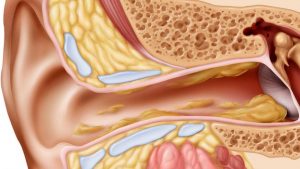Christmas is a social time, a family time. It’s nice to sit back, relax and catch up with family and friends who we haven’t seen in a while. Sometimes it’s noisy, sometimes it’s hard to hear over the kids playing, or other conversations.
The post Tips for Christmas day – when you have a hearing loss appeared first on Auckland Hearing.
]]>
7 tips for managing Christmas Day
1. Sit in a good spot
Often it is helpful to sit with a wall behind you and in the middle of the table. This gives a better chance of hearing more of the conversation and not being distracted by sounds from behind. Try not to be be shy about talking to family and friends about which might be a better seat for you.
2. Keep the volume down during Christmas dinner
Turn the TV off and the music down during dinner. Added noise causes something called the Lombard effect – when it is noisy people talk louder. This can significantly increase the overall noise level making it quite difficult to follow conversations. Others may not even notice if you turn it down before the meal. Hearing in noise is very challenging even for people with minimal hearing losses.
3. Talk to those sitting next to you
Try and avoid conversations across large distances. If you need to talk, move closer, or ask that you continue later, when you can sit closer together.
4. Wear your hearing aids – all day every day
Wearing your hearing aids keeps your brain and hearing system active. People who only wear their hearing aids “when they need them” tend to be the same people who are unsuccessful with hearing aids. This is because their brain never has time to adjust to hearing various sounds. If you only wear your hearing aids in noisy group situations your brain will probably find the sound over whelming – a bit like running a marathon with out doing any training.
Wearing hearing aids all the time, creates a new normal – normal to hear sounds (rather than normal to miss sounds). Your brain works out which sounds are important and which sounds are not important.
When you first get hearing aids you become very aware of all the sounds around you. The more you wear the aids the more your brain adapts, it will decide “that” sound is not important and it will no longer jump into your attention and you will no longer notice it. This process happens very quickly with the current hearing aids as they work so well.
So if your hearing aids are “in the draw” start wearing them in the few weeks coming up to Christmas. If you are not happy with the way your hearing aids are working for you, make an appointment to come in and we will set up correctly for you, so you can wear them all the time.
5. Try other technologies
There are many technologies available now that connect up with your hearing aids. They connect to your phone (
Check out the current hearing aid technology that is available here.
6. Have reasonable expectations
You may not hear everything that everyone says – and that’s okay. Enjoy talking to the people near you and seek out the others and talk to them later. Could you suggest you all rotate seats for dessert?
7. Bring your sense of Humour
It can be hard to keep it all in perspective during Christmas festivities, especially if you feel like you are missing out on some of the fun. Try to laugh a little and be grateful for the wonderful friends and family around you. You may not hear every word they say but you can partake in all of the good feeling around the table. Enjoy the moment.
A bit about Auckland Hearing
Auckland Hearing is an independent hearing aid and audiology clinic set up by Maree O’Sullivan. Maree has worked in Audiology for 20 years and started Auckland Hearing so she could focus on the needs of each client (rather than corporate profits).
We provide a full range of hearing services and work with all of the Ministry of Health approved hearing aid brands in New Zealand. This means we can fit the hearing aids that best suit your needs. Check out our hearing aid price guide here.
[/vc_column_text][/vc_column][/vc_row]
For more posts like these follow us on Facebook or check out our other posts and sign up for our newsletter.
The post Tips for Christmas day – when you have a hearing loss appeared first on Auckland Hearing.
]]>The post Getting Hearing Aids – What is the Process? appeared first on Auckland Hearing.
]]>5 Steps to hearing aids
Step 1: Make a time to see us
The first and hardest step for many is the first one, making an appointment for a hearing test. Research has shown it takes people 7 to 10 years to do something about their hearing loss. Of course, while you are getting used to the idea that you may have some hearing loss, you are missing conversations and connections with people every day. Gradually the people around you adapt to your hearing loss (often by speaking louder or choosing not to share incidental comments) and you start to make different decisions on how you will use your time (like avoiding social situations). Hearing loss impacts the way you live your life. There is also a lot of new research showing other
Of course, the first easy step is to have a hearing test, this will give you a clearer idea about your type and degree of hearing loss and why you can hear some sounds as well as everyone else, but you can’t always understand what people are saying, especially if it is noisy.
The next question is “Do you need hearing aids?”. Your audiologist will let you know if your hearing is in the range where hearing aids will help and your family may also have an opinion on you getting help with your hearing. However, it is essential that once you decide to get hearing aids that you are making this step for yourself. It is true that other people in your life are probably affected by your hearing loss, however, it is better for everyone if getting hearing aids is your choice.
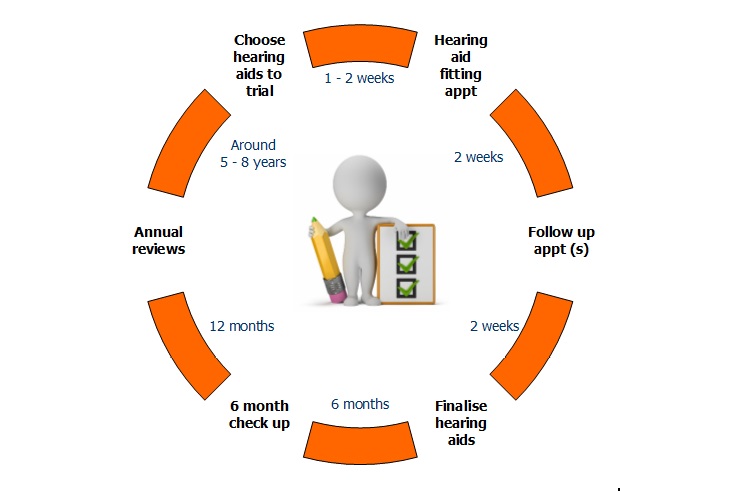
Diagram showing the process and approximate time periods for the life cycle of a pair of hearing aids
Step 2: Hearing Assessment & Discussion
Hearing loss can be:
A full hearing test will clarify your hearing levels and help identify possible causes of your hearing loss.
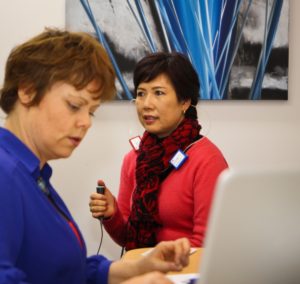
- conductive – where the sound is blocked from reaching the cochlear (outer or middle ear)
- sensorineural – where the cochlear is not able to detect all the sounds
- an auditory processing disorder (APD) – where the brain cannot process the sound detected by your ears detects.
Your Audiologist will discuss your test results. If there is hearing loss, we will let you know why it is affecting your ability to understand people speaking, even though you can hear some sounds easily. At this point, we will refer you on to any other professionals, for further assessment or management, if needed.
If you are interested, we will tell you a bit about hearing aids and possible options that might suit you. You can even have a listen through some hearing aids.
Needs Assessment
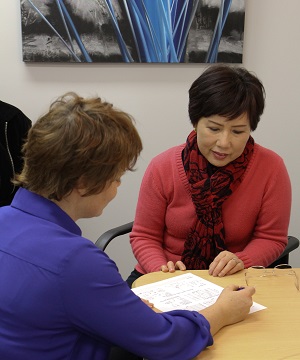
Once you have decided to learn more about hearing aids, we will go through your needs assessment process. We will ask you questions about your lifestyle and hearing challenges. From here we can decide on the hearing aid features and level of technology that suits you best. At this point we create a list of situations where you would like to hear and communicate better. When choosing hearing aids for you we take into account your:
- Hearing loss and other physical factors
- Lifestyle and your hearing needs
- Preferences i.e. what the hearing aid will look like or specific functionality
- Funding and budget – you may be eligible for funding from a government agency
Hearing aids are fitted on a 60-day trial
Once you have decided to trial hearing aids, the process takes 4 – 6 weeks. The 60-day trial system allows you to be sure you are hearing well with your new hearing aids and they are meeting your hearing needs. Depending on your type and degree of hearing loss it takes a few days to a few weeks to adjust to the new sound, so 60 days is plenty of time for you to get used to your new hearing aids.
Hearing aids are always paid for in full before taking them home. If you decide that hearing aids are not for you, you can hand them back within the 60-day time frame. If you do, you will be refunded the cost of the aids minus the fitting fee (to cover some of the time spent with you). We also have the option of changing to other hearing aids at this time if needed.
Hearing Aid Fitting Appointment
Our main goal at the fitting is to get you comfortable with the sound and management of your new hearing aids. We will:
- Calculate the sound required and program your hearing aids specifically for your hearing loss.
- Do real ear measures – use a small soft microphone to measure the sound in your ear canal. This verifies that the hearing aids are doing what we expect of them.
- Discuss the management of hearing aids, cleaning, using the phone
- Talk to you about adjusting to sound and wearing the hearing aids as much as you can.
- Book the follow up appointment – in 1 or 2 weeks time.
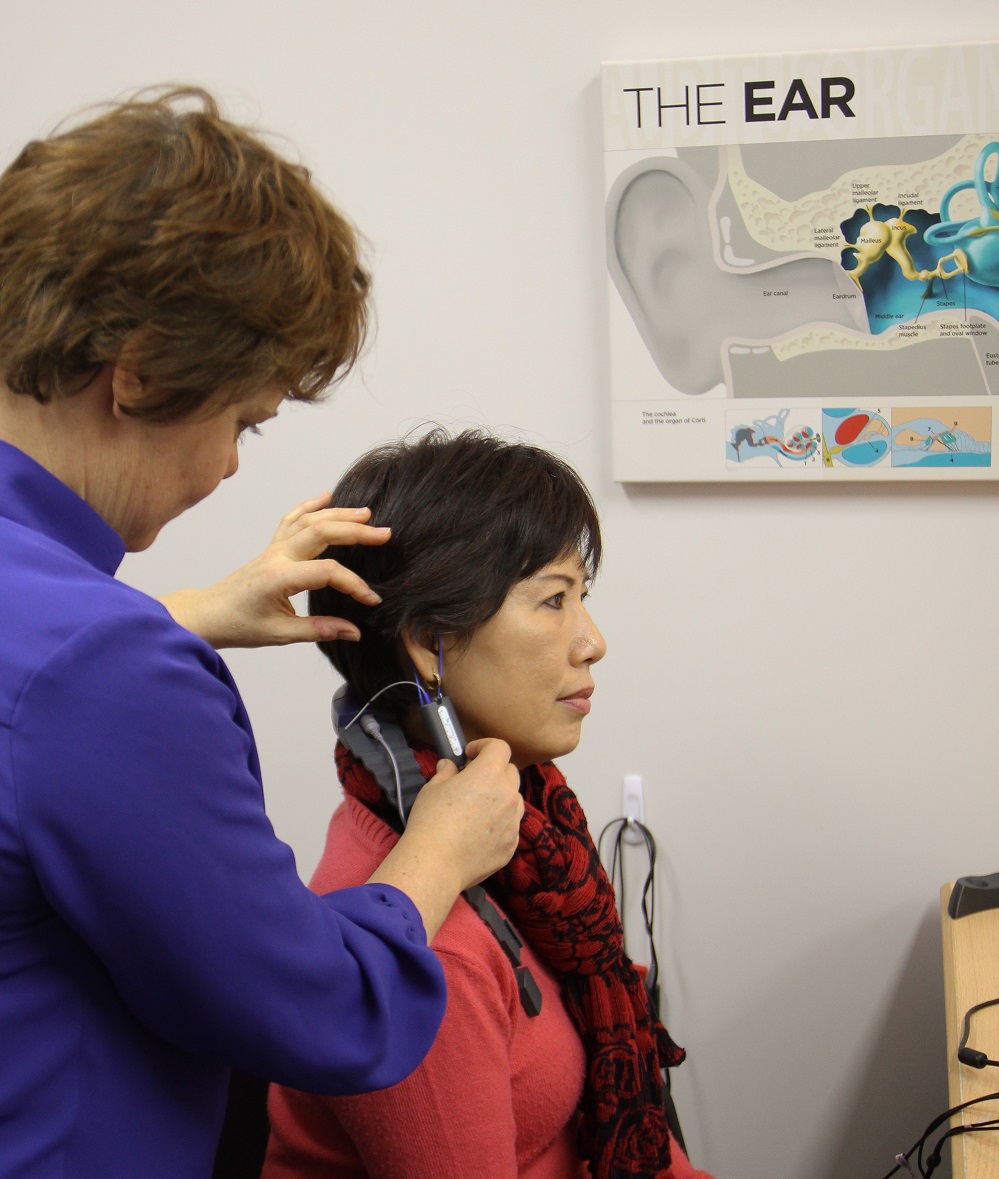
Follow up appointments
Follow up appointments allow us to check how you are going with the hearing aids and make adjustments, as required. Usually people have got used to the initial settings of the hearing aids and are ready for a clearer sound. The number of follow up appointments required will vary for different clients.
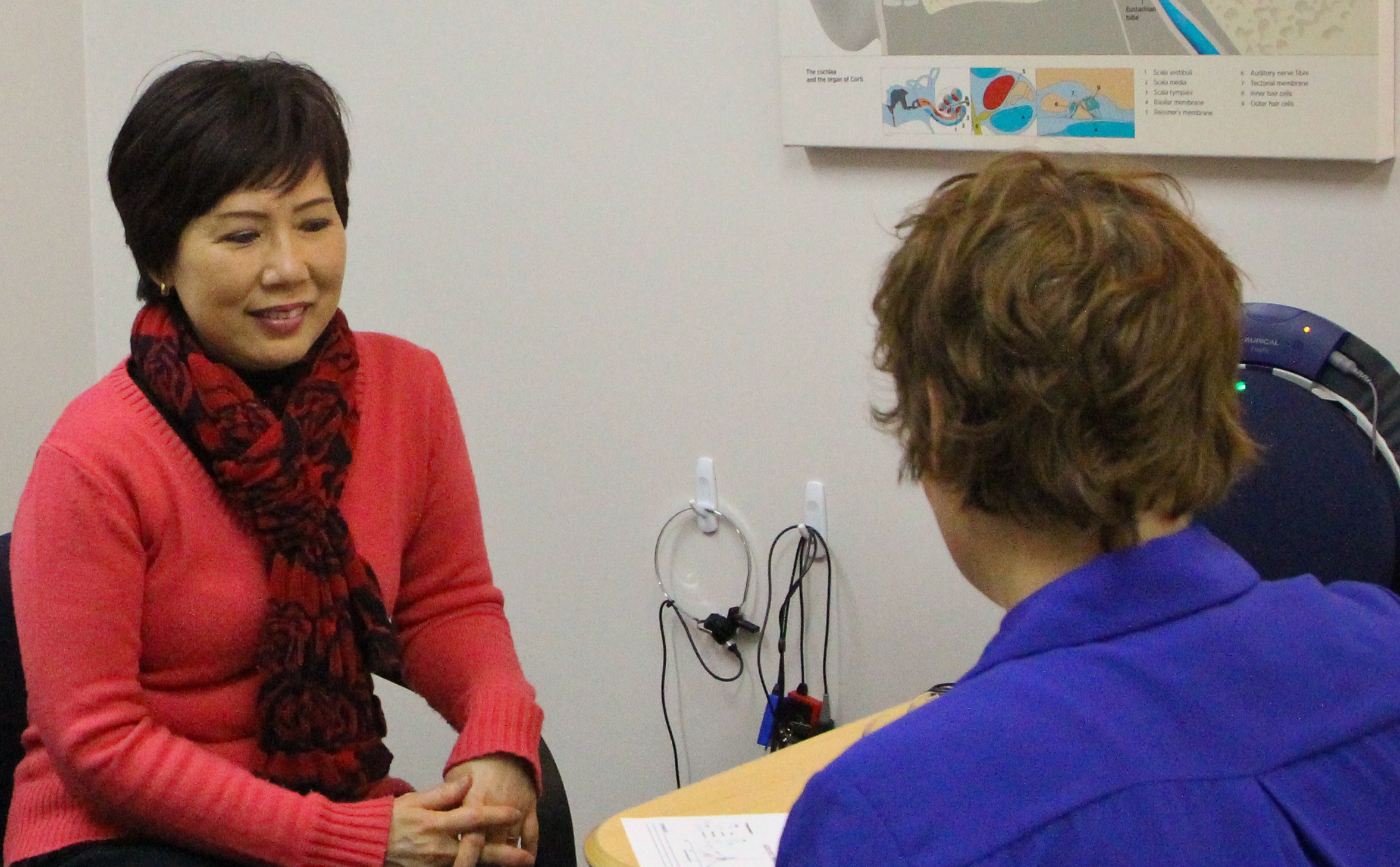
Finalising means that you are happy with your hearing aids and have decided you want to keep them. We will not schedule another appointment at this time but you are welcome to contact us again if you have further questions or need adjustments to your hearing aids. All appointments until your 6 month check are included.
6 Month Check
We will call you up in six months for a check up. This appointment and any appointments up until this time are included in the initial fitting fees. We will check how you are going with your hearing aids and can make adjustments or modification if needed.
Annual Review
You will be called up each year for your annual review, which will include a hearing assessment and adjustment of your hearing aids. We will also check your hearing aids over and make sure they are working as they should.
It is worth coming along to these appointments each year as often hearing gradually continues to change. When we refit your hearing aids to your up to date hearing test your hearing aids will sound clear and crisp again. You will notice the clarity difference especially in difficult listening environments like in groups or noise.
Maree contacted me recently and I went in for another check where she gave my hearing aids a tune-up to maintain their efficiency. With my slowly deteriorating hearing, I hadn’t noticed I wasn’t hearing as clearly as before. I was surprised at how much more I could hear once my hearing aids were adjusted.
Excellent service indeed!
Max Ross- Auckland CBD

Replacing your hearing aids
Traditionally hearing aids lasted about 4-5 years as they would be affected by wax, moisture, dust and dirt. Now most hearing aids are covered by high tech coatings that make them much more resistant to moisture.
Hearing aid lifetime – It is not possible to tell how long these current aids will last but with good care possibly 6-8 years. Obviously, you will need regular hearing assessments and adjustments over that time to keep them working the best for you.
Insurance – It is important that you have your hearing aids listed on your insurance policy just in case they do fall into water or get crushed or lost.
Hopefully, you are feeling clearer about the hearing aid fitting process now. As an Auckland Hearing client, you will become part of our Auckland Hearing community. As long as you are interested we will keep you up to date about the hearing world from hearing care to the latest hearing aids.
Please feel free to add any questions or comments in the section below. Or browse among the other articles about hearing loss and hearing aids.
The post Getting Hearing Aids – What is the Process? appeared first on Auckland Hearing.
]]>The post How to apply for ACC Hearing Aid Funding appeared first on Auckland Hearing.
]]>
You may be able to get funding for hearing aids through ACC (Accident Compensation Corporation). So how do you apply for ACC hearing aid funding?
You may qualify for ACC hearing aid funding if you:
- have had an accident in New Zealand that caused hearing loss in one or both ears
- have worked in a noisy environment in New Zealand and you believe that it caused your hearing loss.
ACC provides three levels of funding
The level of ACC hearing aid funding for each claimant is decided by assessing each individuals situation and attributing how much of the hearing loss is due to the accident or noise exposure.
ACC hearing aid funding for both ears (Binaural)
- Level 1 – $ 3157.90 (incl GST)
- Level 2 – $3904.40 (incl GST)
- Level 3 – $4953.05 (incl GST)
ACC hearing aid funding for one ear (Monaural)
- Level 1 – $ 1873.35 (incl GST)
- Level 2 – $ 2247.10 (incl GST)
- Level 3 – $ 2770.93 (incl GST)
How to apply for ACC hearing aid funding
- See you GP – Your GP will send the ACC45 form to ACC
The ACC hearing aid funding process starts with a visit to your GP. Your GP will need to apply to ACC on your behalf.
- Fill out and return forms to ACC
ACC will send you a pack with information and some forms to fill in and send back to them. They will ask about your accident or work history.
- Audiologist Assessment
ACC will send you a request to see an Audiologist for a full diagnostic hearing assessment. Please give us a call at Auckland Hearing; we will make you an appointment. We will do a full diagnostic hearing test and fill in the forms to send them back to ACC. ACC covers the cost of this hearing test.
- ENT specialist appointment
ACC will make you an appointment to see an ENT specialist. They will decide how much of your hearing loss is due to noise and how much is from other things, i.e. age. ACC covers the cost of this appointment.
- ACC Hearing aid funding
ACC will make their decision and send you a letter letting you know at which level of funding you have qualified.
- Hearing needs assessment
We will see you again at Auckland Hearing for a need assessment appointment to decide which hearing aids are best for you.
- Fully funded hearing aids
We can provide fully funded hearing aids at all funding levels, or you can top up to other hearing aids if you choose to.
More information
In 2014 funding was changed and improved for ACC claimants here are some more details about the current ACC funding system.
How to order your ACC funded hearing aids batteries
If you do not feel ACC is the right path for you, please check out the other hearing aid funding options in New Zealand.
Getting started with your ACC application
If you are not sure about whether you could be eligible for an ACC claim or would like more information, please make an appointment for a free hearing check and discuss your options and the way forward.
The post How to apply for ACC Hearing Aid Funding appeared first on Auckland Hearing.
]]>The post Do I have hearing loss? Do I need hearing aids? appeared first on Auckland Hearing.
]]>
“Perceived need*” is the main reason for the
slow uptake of hearing aids for some people.
*The perception that hearing loss is not severe enough
Why? – because people adjust
Gradually over time, the person with the hearing loss adjusts to not being able to hear, and the people around them change by speaking louder and directly to them. Eventually, as communication as it gets too hard, friends and family start choosing to share less. They stop telling jokes or sharing inconsequential news and discuss only significant matters.
Hearing loss is “invisible”. It is also sneaky…
Hearing loss is usually gradual: first, you have to concentrate harder to follow the conversation in a cafe, next socialising becomes tiring from all the extra effort you need to use to understand the banter; soon you mis-hear the directions and find yourself asking for repeats.
Eventually, people take one of two paths:
- To withdraw into your own world, keep to yourself or stop going out
- to become the life of the party because while you are talking, it doesn’t matter if you cannot hear… right?
What brought you to this page?
- Have you noticed that you have been missing the details more often?
- Are you struggling to follow along in a group conversation?
- Or – have other people suggested that you don’t always hear them?
Hearing loss affects people of all ages. There are many reasons for hearing loss including hereditary factors, noise exposure, trauma and ear pathology. Hearing loss does become more common as we age due.
Hearing loss is invisible
Hearing loss is painless
Hearing loss is gradual
Hearing loss is sneaky
In the beginning, hearing loss takes away…
- The beginning of the sentence,
- The little details,
- The punchline…
With time hearing loss may…
- … increase mental fatigue – as you concentrate harder just to follow along- leaving you feeling exhausted at the end of the day
- … begin to erode your confidence – as you are no longer sure about what was said
- … cause you to ask for repeats – when you miss the first word
- … lead you to feel embarrassed about missing the details or about having to ask for repeats too often
- … make you feel less interested in socialising, choosing to stay home as it is easier that way.
The gradual nature of hearing loss means that we adapt over time. We change our behaviour, we choose our environments and slowly our relationships change as everyone adapts to the change in our hearing.
Hearing loss is invisible and sneaky.
As it changes, we adjust.
Gradually it affects personality and relationships.
Hearing loss changes us over time.
Maree O’Sullivan
Effects of hearing loss on you
Having hearing loss does not usually mean that you stop hearing all sounds equally; the hearing loss pattern will depend on the cause of the hearing loss. In many cases, hearing loss begins in the high pitches leaving the hearing for low tones in the normal range. Words will start to sound dull or become less clear, resulting in a reduced understanding of speech, especially in difficult listening situations. For example, in a group of people, hearing while the TV or radio are on in the background or trying to understand conversation in a large echoey room. Although for some types of hearing loss (conductive) people hear well in noisy environments, where people are speaking loudly but cannot understand quiet speech.
The way you respond to reducing hearing clarity will depend on your personality, the degree and shape of your hearing loss and how long your hearing has been deteriorating. Most people with hearing loss find it tiring to follow the conversation, as their brain has to work harder to fill in all the sound gaps that they miss –
“…now was that See or Tea? Must be Tea – that makes more sense.”
This is called auditory fatigue.

Often people find the tiredness from auditory fatigue gets worse at the end of the day. It can be harder to keep up with fast conversation, especially in a group or if people are facing away.
Many people tell me that they have felt embarrassed by their hearing loss at some point, either because they have misunderstood someone or they felt embarrassed asking for repeats. Some people find it easier to step back from the intense concentration they need to use to stay in the conversation and slip into their own thoughts. Others will talk more, as when you are talking you do not need to hear. Unfortunately, both of these options lead to a change in relationships over time.
Impact of Hearing Loss
Hearing loss impact varies between individuals and is influenced by many factors including degree and cause of hearing disorders, length of untreated hearing loss and personality. We know hearing disorders leads to social isolation, personality change and in some people increases the chance of anxiety and depression. Studies have also found a strong link between hearing disorders and the development of dementia. This US article outlines the effects of untreated hearing disorder in adults.
It takes up to 10 years to seek help with hearing loss
So why do we wait to do something about Hearing disorders?
- Hearing loss is invisible
- Hearing loss is gradual
- People are great at adapting to their situation and change in hearing
- Family members help to compensate
- There is a history of stigma around hearing aids
- There is a history of poor technology in hearing aids
- We “just get on with it…”
- Change is hard! … and takes motivation
- We don’t understand what is involved in getting and using hearing aids…
- What is the process of getting hearing aids?
- What is the cost of hearing aids?
- What is the right hearing solution for me?
- Do I need to wear them all the time?
- How do I look after hearing aids?
Do you think you may have hearing loss?
Are you ready to take the first step?
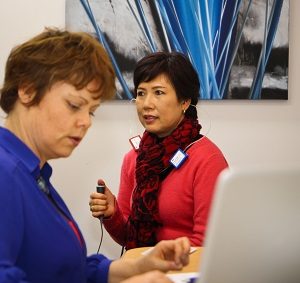
The first step is to have a full hearing assessment. This will assess your hearing level as well as pinpoint where in the ear the hearing loss originates. Hearing loss may be described as:
- Conductive – where there is a blockage stopping the sound from reaching the cochlear (outer or middle ear)
- Sensorineural – where the cochlear is not able to detect all the sounds
- Retrocochlear – where sound cannot be processed by the brain due to a blockage along the hearing pathway.
- An auditory processing disorder (APD) – where the brain cannot process the sound it detects.
The discussion after the hearing assessment will give you knowledge and understanding about your hearing and how it affects your life at the moment. If you are ready and interested, we will talk to you about the options we have for helping you with your hearing and what is involved. We will discuss the hearing aid funding options available for you. We will even fit you with some hearing aids, and you can go next door to the cafe for a cup of coffee while you try them out. From here, it is up to you to decide your next step.
Hearing aids are the most common and effective way to help people with hearing loss (after excluding medical reasons). However, before trialling hearing aids, it is important that you are ready in yourself, to go through the hearing aid process. It must be your decision, not someone else’s…
So… what was it that brought you to this page?
I hope this article helped you gain a greater understanding of hearing loss and its effects. Maybe the subject could be rephrased. Rather than the question being “Do I need hearing aids?” Perhaps, the question could be “Would I like to communicate easily with the people that matter to me?”
-

Do you want to converse easily? -
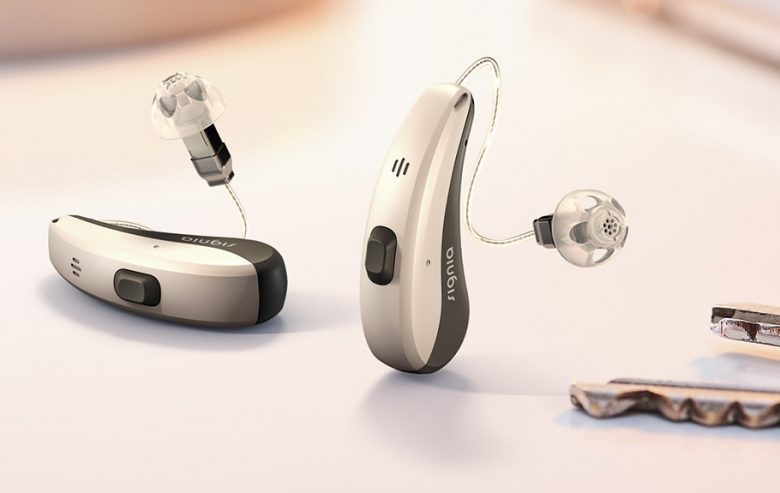
Do you want hearing aids?
“Do I need hearing aids?”
Well… “Do you need hearing aids?” Do you want to be part of the conversation?
Hearing loss is common. Many people wear hearing aids. Have you noticed them?
The post Do I have hearing loss? Do I need hearing aids? appeared first on Auckland Hearing.
]]>The post Hearing aid batteries – types, sizes & recycling appeared first on Auckland Hearing.
]]>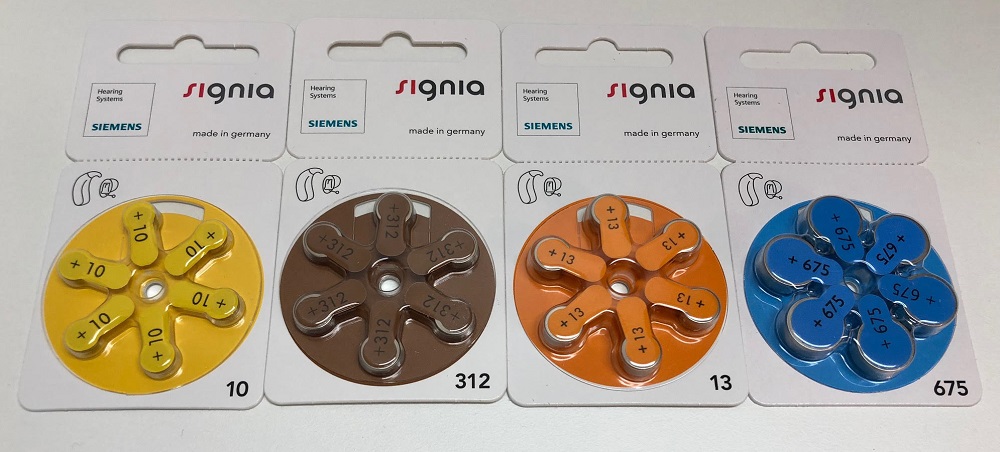
Battery sizes
Size 10 batteries (yellow)
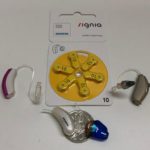
Yellow labelled size 10 hearing aid batteries are used in the smallest hearing aids including Invisible in the canal (IIC), completely in the canal (CIC) and the extra small behind the ear receiver in the canal (RIC) hearing aids styles.
They last between 3- 7 days depending on the degree of hearing loss and technology in the hearing aids.
Size 312 batteries (brown)
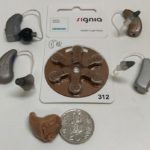
Brown labelled Size 312 hearing aid batteries are used in some receiver in the canal (RIC) and in the ear (ITE) hearing aids.
They last about 10 – 14 days depending on the level of amplification and functionality in the hearing aids. Using functions like streaming sound from devices like your phone has a high battery drain and shortens battery life.
Size 13 Batteries (Orange)
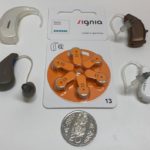
Orange labelled Size 13 hearing aid batteries are used in some receiver in the canal (RIC), behind the ear (BTE) and in the ear (ITE) hearing aids.
They last around 10 – 14 days depending on the level of amplification and functionality in the hearing aids. Using functions like streaming sound from devices like your phone has a high battery drain and shortens battery life.
Size 675 batteries (blue)
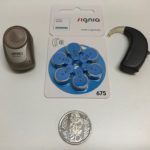
Blue labelled Size 675 hearing aid batteries are used in hearing aids that require a lot of power including bone conduction hearing aids (BAHA) and cochlear implants (CI).
They last about 10 – 14 days depending on the level of amplification and functionality in the hearing aids, BAHA or CI.
Streaming is now available in some CIs and this will increase the battery drain.
Types of batteries
Zinc-air batteries
Disposable zinc-air batteries are the most common type of hearing aid batteries. They have a sticker on them that covers small holes in the top of the battery. O
Once the sticker is pulled off the battery will continue to drain even if the hearing aids are not being used.
Zinc-air hearing aid battery tips
- Stick the battery sticker onto your calendar when you change your battery, it will let you know when you should expect to change the battery again.
- Only pull the stickers off when you are ready to use them
- Increase your hearing aids battery life by leaving the battery on the table for 1-5 mins after pulling off the sticker. This allows more air into the holes in the top of the battery.
Rechargeable Silver-zinc batteries and nickel – metal hydride batteries
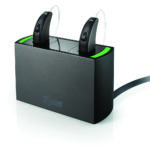
Rechargeable silver-zinc and nickel-metal hydride batteries generally last 10 to 14 hours (a day) before needing to be recharged – usually over night. The batteries look similar to zinc-air batteries but they do not have the holes to let air in.
An advantage of both Rechargeable Silver-zinc batteries and nickel – metal hydride batteries is that if the batteries run out, the same size disposable
Rechargeable silver-zinc and nickel-metal hydride batteries last about a year and then need replacing. When you get your hearing aids at Auckland Hearing we notify you annually when it is time to renew your rechargeable batteries.
Lithium – ion rechargeable batteries
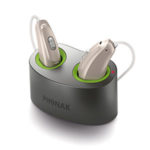
Lithium-ion (Li-ion) batteries are sealed within the hearing aid and are only removable by the hearing aid manufacturer. They are expected to last for 5 to 6 years, potentially the life of the hearing aid.
For the batteries to be replaced the whole hearing aid has to go into the manufacturer for a service.
The advantages of rechargeable batteries
- Many people choose rechargeable batteries as they are easy to manage. You just need to put them in the charger each night.
- With rechargeable batteries, there is no need to open fiddly battery doors or remember when the batteries need to be replaced.
Rechargeable batteries are also better for the environment as you are not adding so many batteries to the landfill.
Buying your hearing aid batteries
It does not matter what branding is on your batteries, often hearing aid batteries are re-branded by a hearing clinic or a manufacturer. Clinics that fit hearing aids may be a better choice than other retailers, as they know the importance of good quality batteries. At Auckland Hearing we sell batteries by the card or at a discount by the box.
Hearing aid battery expiry date
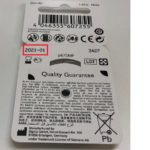
Check the expiry date on the back of the battery pack. The expiry date on the back fo the packet should be at least a year away. Expired batteries not only have a shorter life, they may secrete a corrosive white power into the battery compartment of your hearing aids.
It is best to buy your hearing aid batteries from a retailer that sells a lot of batteries, so they have not been sitting on the shelf for a long time.
Recycling your hearing aid batteries

Auckland Hearing has a hearing aid battery recycling program. Please bring in your used batteries as we will make sure they are disposed of safely.
We send our used hearing aid batteries to UpCycle who hold EPA approved battery export permits. The batteries are exported to South Korea for processing, where they get stripped off and chemicals are extracted for recycling.
Check out some of our other posts here:
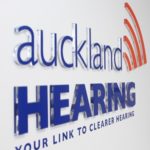
The post Hearing aid batteries – types, sizes & recycling appeared first on Auckland Hearing.
]]>The post ACC hearing aid batteries – how to order batteries for ACC funded hearing aids appeared first on Auckland Hearing.
]]>If you had your hearing aids funded by ACC, your batteries are included as part of your ACC cover. In the past ACC hearing aid batteries were sent out automatically every 6 months or so, but this lead to some people accumulating more batteries than the needed. Now, when you run out of batteries you must request for more to be sent to you.
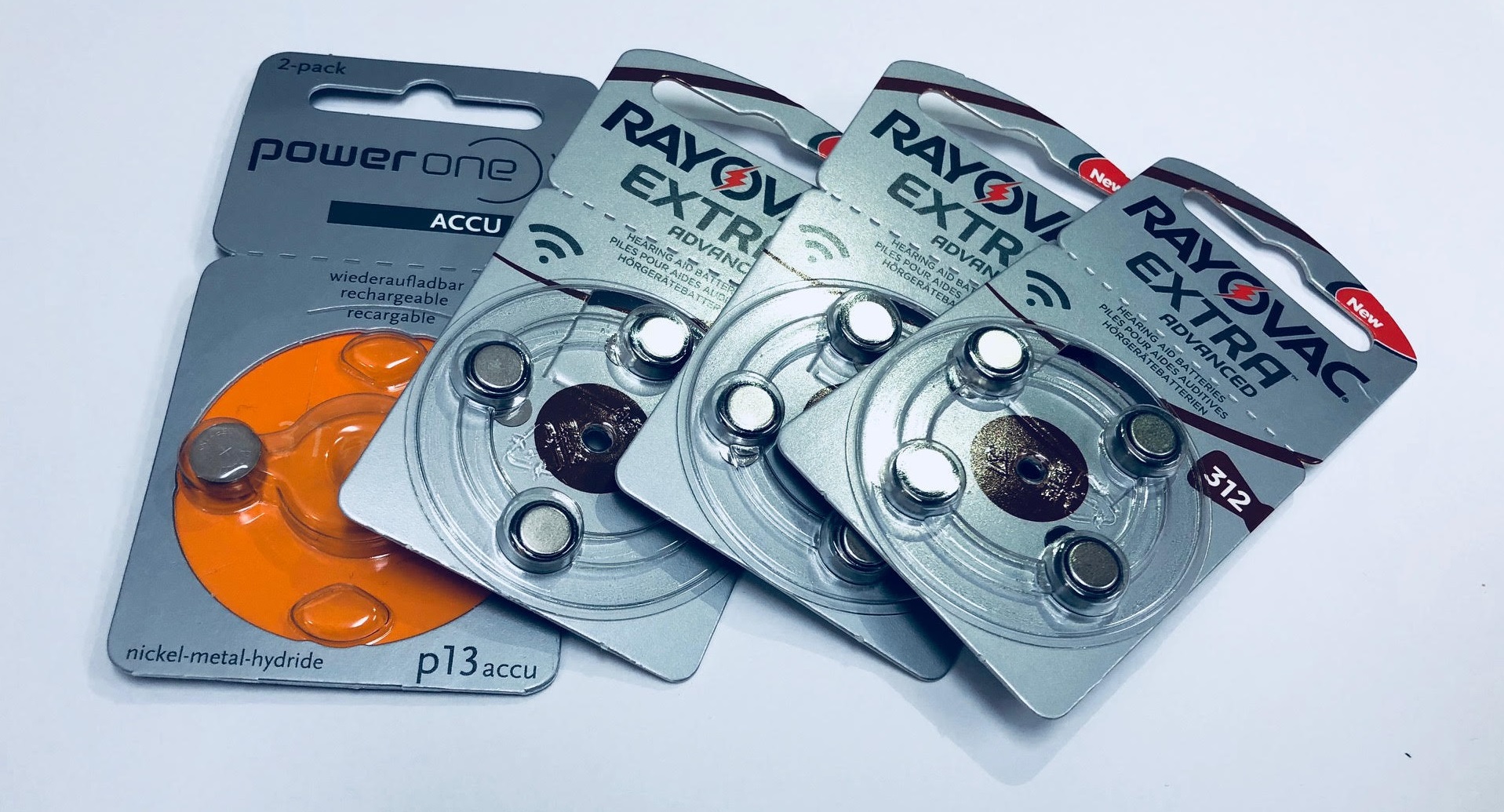
When you finalised you hearing aids your Audiologist sent in a battery request form for your ACC hearing aid batteries. ACC knows the size and type of batteries you need. The quantity of batteries you are expected to need is also on file and they are allocated to you each 6 months or so.
ACC hearing aid battery order options:
Time needed: 5 minutes.
When you need new batteries you can order more in the following ways:
- Go to the internet website – www.icanhear.co.nz
Fill in your ACC number and your date of birth and then order more batteries
- Complete the return slip that ACC sent to you with the first set of batteries (link here) and send it to:
Freepost 225409
ACC Battery request
PO Box 62253
Sylvia Park
Auckland 1644 - Reorder, change or reduce your batteries –
by phoning Community client direct on 0508 222 546.
Or for any other questions about ordering your ACC hearing aid batteries or more information about your hearing loss claim contact the ACC Hearing Loss team on 0800 101 996.
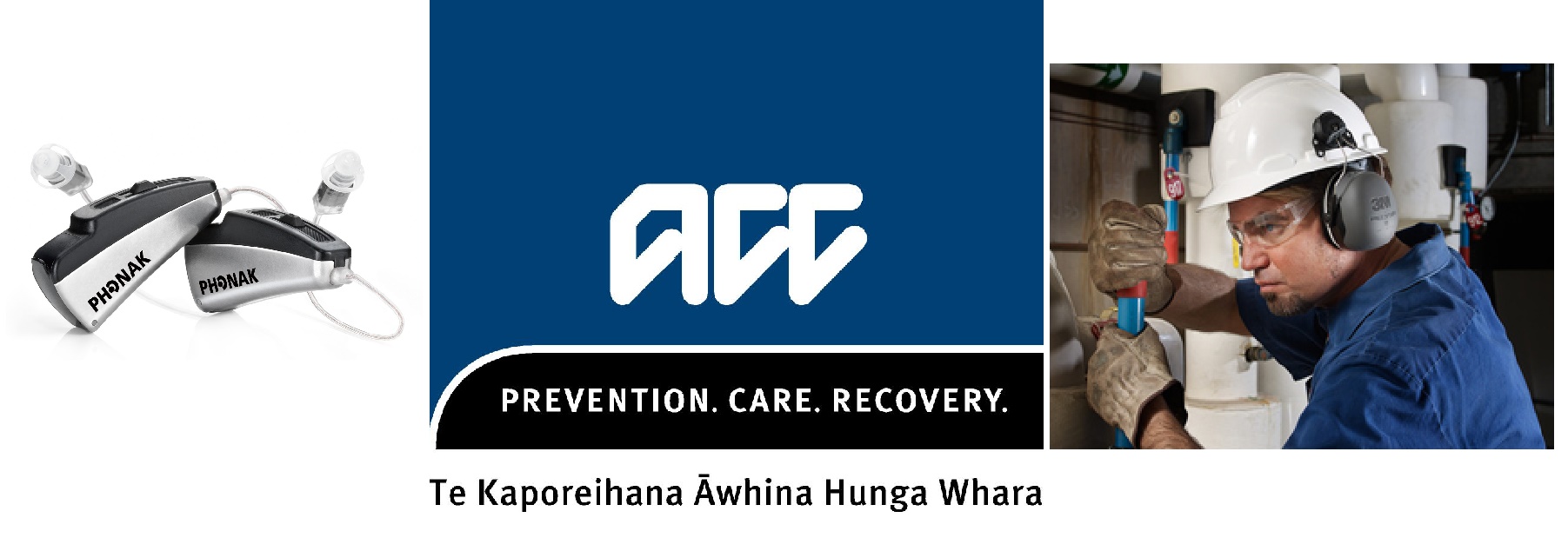
-
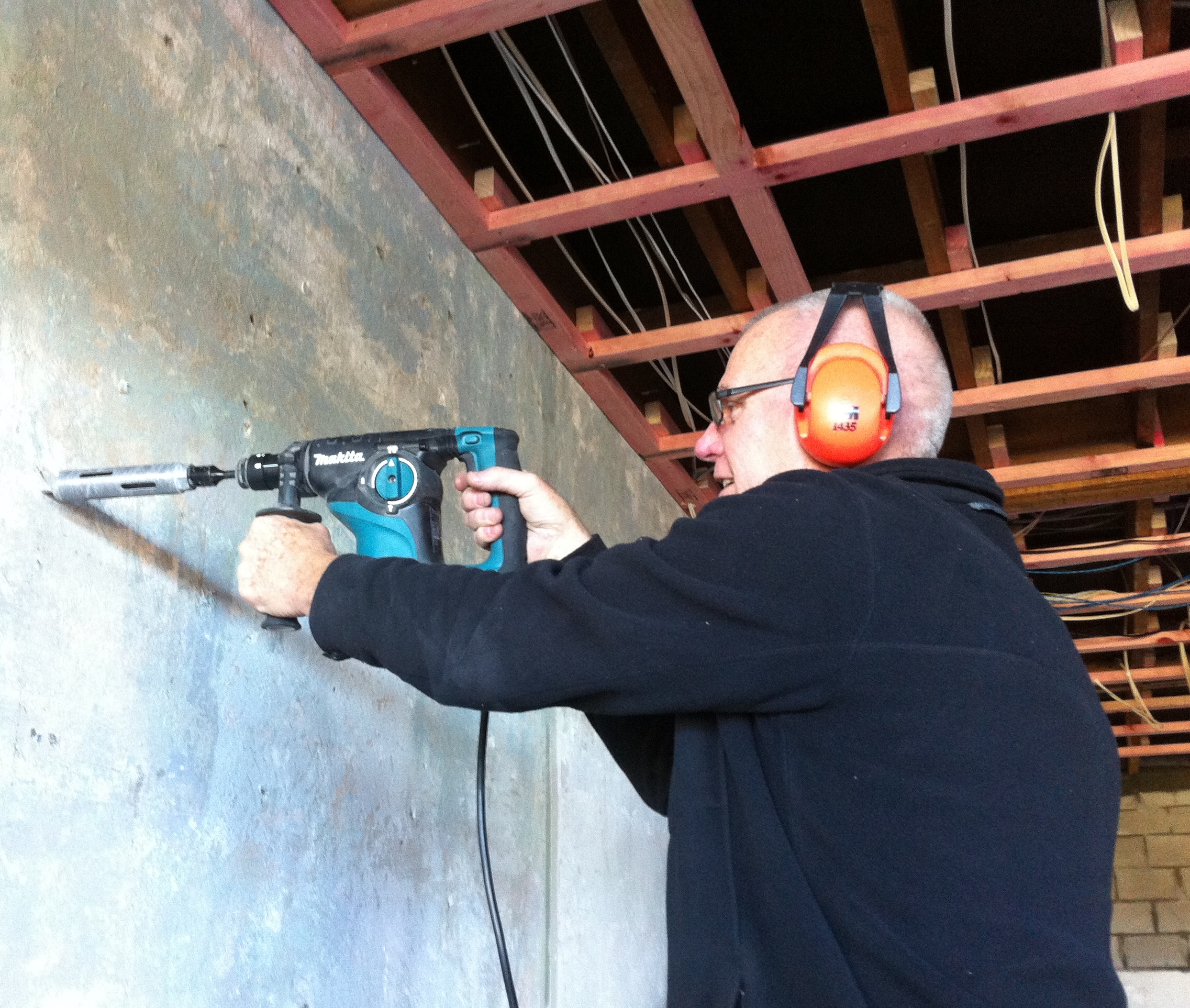
How to apply for ACC Hearing Aid Funding -

How to apply for ACC Hearing Aid Funding
The post ACC hearing aid batteries – how to order batteries for ACC funded hearing aids appeared first on Auckland Hearing.
]]>The post Wearing and Caring for your Custom Earplugs appeared first on Auckland Hearing.
]]>Putting your custom earplugs in your ears.
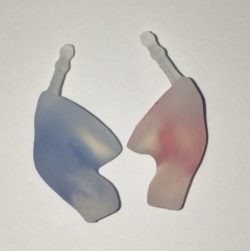
Red is for the right ear and Blue is for the left ear. The removal cord sits at the bottom of your ear canal. To put your custom earplugs in, hold them with your thumb on the bottom (near the removal cord) and finger on the top and they will easily slide in.
Your custom earplugs may be a bit grippy at first, you can use some water-based lubricant to help them fit in if needed.
Cleaning your earplugs
Each time you use your earplugs give your earplugs a wipe with a tissue or a soft cloth when you take them out. Please store them in the case that they came with and keep them away from
Your custom sleep earplugs (pictured above) can be cleaned in hot soapy water, then rinsed. Allow them to dry out before wearing them.
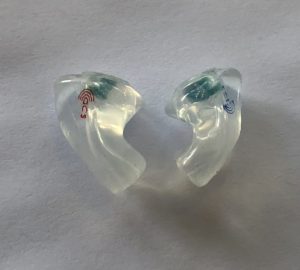
The filters in a musician (or other) earplugs must not be immersed in water.
To clean them, the filters can be popped out with a gentle squeeze and then you can clean the plugs in soapy water.
Dry your earplugs thoroughly before putting the filters back.
How long do earplugs last?
Our ears continue to grow over our lifetime and silicon shrinks. This means that over time the earplugs will become looser and will not block as much sound (or swim plugs may let water in). With a lot of wear, earplugs discolour or the material may stiffen.
Your custom earplugs could last many years but may not be as effective after a few years. Children’s earplugs for swimming need to be replaced more often as their ear shape and size is continually changing. For optimal function
Replacing lost ear plugs
The company that makes your earplugs keeps a copy of your ear impressions on file. This means if you lose one or both plugs they can be remade easily. Just give us a call and we will reorder them for you. The amount of time
The post Wearing and Caring for your Custom Earplugs appeared first on Auckland Hearing.
]]>The post What could be causing your itchy ears? And what to do about it. appeared first on Auckland Hearing.
]]>Happiness is having a scratch for every itch. Ogden Nash
The most obvious way to manage itchy ears is to get to the itch and scratch it. However, like most itches, scratching will likely make it worse, not better.
The skin in your ear canal is very thin and sensitive, which makes it prone to injury and dryness and the itch in your ear canal is often hard to reach. I have heard of people using all sorts of tools to get to the itch which not only makes the itch worse, it makes it potentially dangerous (for example think: a pointy object in ear next to a quickly opening door – YES it happens).
So what could be causing the annoying itch? And what is the best way to manage it for the long-term?
What is causing your itchy ears?
Wax build up
In most cases, ear canals do a good job at self-cleaning. Wax is designed to work its way out of your ear (often in a spiral pattern) from the eardrum to the ear canal entrance; where you can clean it away with a tissue or cloth. On its journey toward the ear canal entrance, the wax picks up dead skin cells and any other foreign particles and removes them from your ear canal. A clever system to clean this mostly inaccessible orifice. For some people with particularly narrow or bendy ear canals, wax gets trapped on its way out of the ear canal. This can feel itchy and of course, over time it can block your hearing. The best way to manage this it to see an ear nurse who will use a microscope to look down your canal while they suck out the wax build up, of course, they can check for other possible causes of skin irritation or infection.
Allergic reactions
A common cause of itchy ears is an inflammation of the lining of the ear canal due to an allergic reaction. The reaction could be caused by shampoos or soaps, overused earplugs or deeper fitting earphones.
Has there been a recent change in the products you use? The sensitive ear canal skin can be more prone to skin irritations and inflammation than other skin areas like your head or face. Does the itch reduce when you stop using the new product?
Infections – fungal or bacterial
Fungal or bacterial infection of the external auditory canal (otitis externa) is another cause of itch in the ear canal.
Infections of the ear canals occur when there is constant humidity where an infection can grow. This can happen for people who wear occluding earplugs or hearing aids or swim often and is more common in people with diabetes. If you suspect an infection see your GP (for drops) or an Ear nurse specialist who will clear and manage the infection.
Known skin conditions
Itching ears may be a side effect of a systemic skin condition affecting the rest of the body, such as psoriasis or eczema. If you have been diagnosed with one of these conditions, it can also affect your ear canals.[/vc_column_text][/vc_column][/vc_row]
Are you over cleaning your ears?
No ear wax (cerumen) in your ear canal can make them itch
We now know that ear wax (cerumen) is good for our ear canals and performs an important job keeping our canals clean and lubricated. However, some people view ear wax as the enemy and do their best to remove it at all costs. Using earbuds, metal objects or cleaning agents to regularly clean your ears removes the protective barrier over your sensitive ear canal skin and can cause itch and irritation.
Breaking the itch cycle – caused by over cleaning
You will need to build up the normal protective wax to break the itch cycle.
- Do not put your finger or use any instruments in the ear.
- If your ears get wet, you need to shake the water out and use a hair dryer to gently dry them out.
- If your ears are very itchy your GP may be able to prescribe drops to use.
- You could also try some olive oil drops once or twice a week to provide a protective coating which helps for some people.
- You could try some honey eye drops, which you can buy online and use one or two drops intermittently in the ears.
Your ears are likely to be itchy until it starts returning to its normal cleansing function and building up some normal wax. It may take some time for it to settle down.
The post What could be causing your itchy ears? And what to do about it. appeared first on Auckland Hearing.
]]>The post Noise Destroys – Noise induced hearing loss appeared first on Auckland Hearing.
]]>
NFD – Hearing Awareness Week 2018 (3 – 9 March)
The National Foundation for the Deaf extended World Hearing Day 2018, into a week of awareness-raising to prevent noise-induced hearing loss (NIHL).
What is noise-induced hearing loss?
Noise-induced hearing loss is caused by exposure to excessive sound levels. It commonly occurs due to repeated noise exposure over a long period of time (many years) in the workplace or can arise recreationally from attendance at loud concerts or use of loud power tools at home. A single event such as an explosion can cause noise‐induced hearing loss if the intensity is loud enough. (Refer to our Decibel Diagram, attached).
Sound pressure caused by noise destroys the delicate nerve cells in the inner ear that transmit sound messages to the brain. The nerve cells are replaced by scar tissue which does not respond to sound. The damage is painless but permanent. Hearing aids can be helpful but cannot restore normal hearing.
Noise‐induced hearing loss is preventable.
Excessive exposure to noise is a known cause of one-third of hearing loss in New Zealanders. The
higher the noise level and the longer your exposure, the greater the damage done – but the good news is that you can start preventing any further damage now.
There are three key things you can do to prevent noise‐induced hearing loss:
‐ Wear hearing protection when you are exposed to loud noise
‐ Limit the amount of time you are exposed to loud noise
‐ Turn down the volume on personal music players ‐ and headphones are preferable to
earbuds, which play the music close to your eardrum.
The National Foundation for the Deaf has downloadable posters and fact sheets FREE for anyone who wishes
to participate in raising awareness of the prevention of noise‐induced hearing loss – at any time!
Go to www.nfd.org.nz and click on the link on the homepage.
The NFD posters and fact sheets include:
‐ Noise Destroys campaign poster
‐ The Decibel Diagram
‐ Protect your Hearing
WorkSafe has excellent workplace noise prevention resources on their website: www.worksafe.govt.nz
Sources: nfd.org.nz; WorkSafe.govt.nz; healthyhearing.com; hearingawarenessweek.org.au; restoredhearing.com
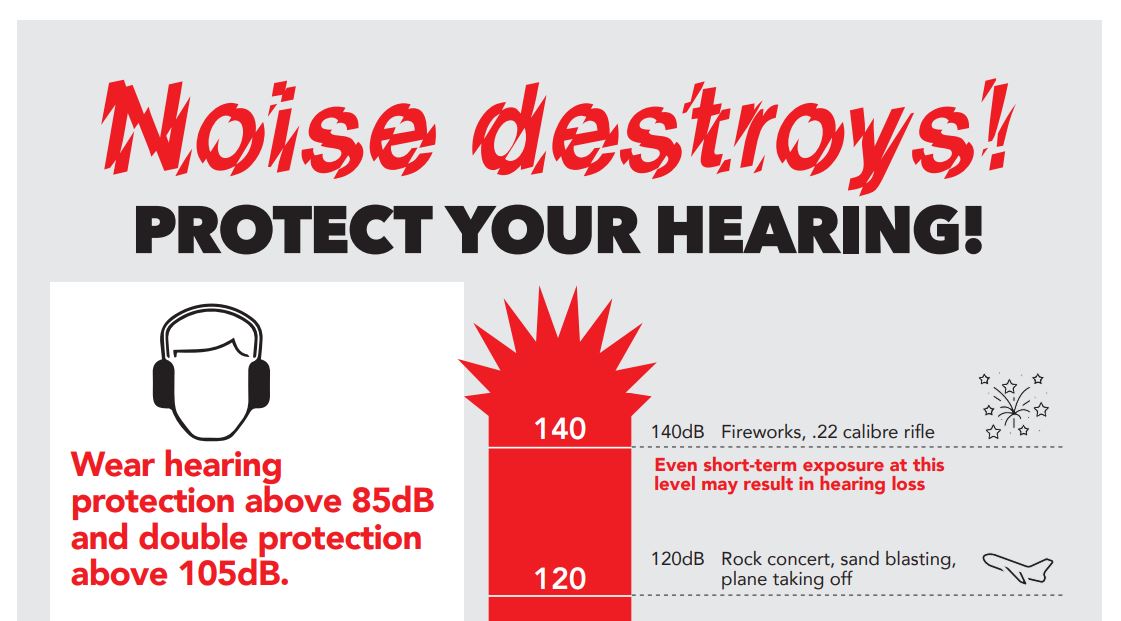
For more information
If you know you have hearing loss due to noise at work and feel you are ready to trial hearing aids please see our two information pages about hearing aids funding through ACC:
– How to apply for ACC Hearing Aid Funding
– ACC hearing aid changes – More funding, More choice
The post Noise Destroys – Noise induced hearing loss appeared first on Auckland Hearing.
]]>The post Did you know that hearing loss is linked to memory loss and dementia? appeared first on Auckland Hearing.
]]>Hearing loss is very common and it effects people of all ages. There are many reasons for hearing loss including hereditary factors, noise exposure, trauma and ear disease. Hearing loss becomes more common as we age. Research shows increased severity of hearing loss is correlated to increased memory loss and dementia.
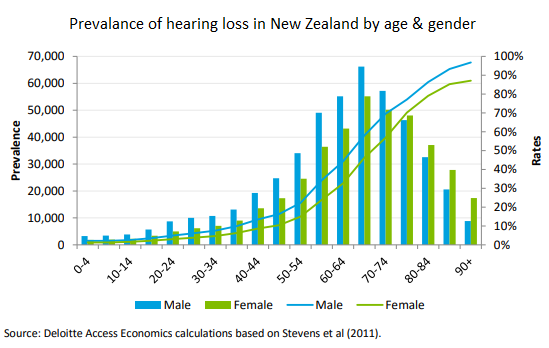
This graph shows the results from a study by the National Foundation of the Deaf called Social and economic costs of hearing loss in New Zealand (published in December 2016).
Hearing loss is usually gradual. In the beginning, hearing loss takes away the beginning of the sentence, the little details and the punchline. With time hearing loss may increase mental fatigue – as you concentrate harder just to follow along. It can begin to erode your confidence – as you are no longer sure about what was said and it can lead you to feel embarrassed about missing the details or about having to ask for repeats too often.
The gradual nature of hearing loss means that we adapt over time. We change our behaviour, we choose our environments and slowly our relationships change as everyone adapts to a change in our hearing. Often hearing loss leads people to socialise less, which can lead to less overall activity. Hearing loss is also linked to memory loss and dementia (or cognitive decline).
Hearing loss is invisible and sneaky.
As hearing changes, we adjust.
Gradually it effects personality and relationships.
Hearing loss changes us over time.
Maree O’Sullivan (Audiologist)
Hearing loss is linked to memory loss and dementia
In 2013, Frank R. Lin, MD, Ph.D conducted a study on the topic of hearing loss and cognitive decline. The study observed 1,984 adults over the course of six years, tracking the progression of their hearing loss in relation to their cognitive function. He found that there is little doubt that hearing loss is a factor affecting loss of mental acuity in older adults.
The study found that the people with more severe hearing loss, had a greater likelihood of developing a cognitive disorder, and an increased decline in mental function. Even subjects with mild hearing loss were found more likely to experience cognitive difficulties like memory loss and dementia, it is also linked to increased falls.
The exact link between hearing loss and cognitive decline is not yet fully understood and current studies are focusing on this question. It is possible that is due to increased “cognitive load”, where the brain is overwhelmed with demands on its limited resources. Concentrating hard to follow the conversation means we have fewer resources for other things like memory and maintaining balance.
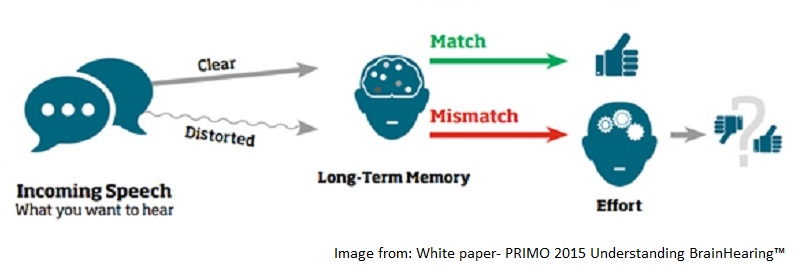
“Communicating when you have a hearing loss, takes up lot of brain power. It’s a bit like a computer that runs slower when there is a large program running in the background.” says Maree O’Sullivan, Audiologist from Auckland Hearing.
There is evidence that the part of the brain that was used by the hearing system gets reallocated and is used by the visual system in people with hearing loss. “Declines in hearing abilities may also accelerate grey matter atrophy and increase the listening effort necessary to comprehend speech. Hearing aids may not only improve hearing but preserve the brain,” said Dr. Lin.
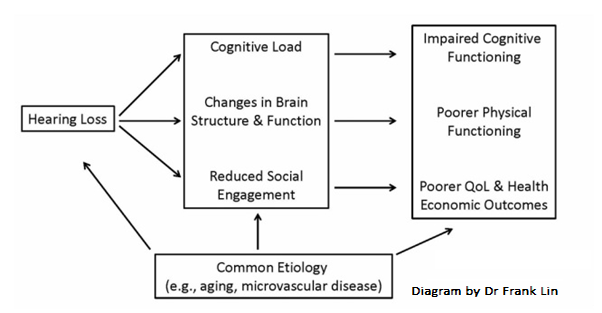
Hearing aids may help reduce memory loss and cognitive decline
As evidence continues to mount that hearing loss is a contributing factor in the development of memory loss and dementia, it is imperative to consider the profound consequences of ignoring hearing loss. People with hearing loss on average wait ten years from when they are first diagnosed before they seek treatment; even though the sooner hearing loss is detected and treatment begins, the more hearing ability can be preserved. “Considering early diagnosis and medical intervention of hearing loss slows the progression of dementia and Alzheimer’s disease, it is more important than ever for patients to get their hearing loss treated sooner rather than later,” said Maree O’Sullivan – Audiologist at Auckland Hearing.
Research has shown that people that wear hearing aids do not show the same cognitive decline as those who don’t. However, although there is a definite co-relation, Dr Frank Lin and his team are not prepared to assume causation. This means that we can not assume that wearing hearing aids reduces cognitive decline. This is because the reduced cognitive decline measured may, in fact, be due to other factors, for example, education levels or socioeconomic factors that may lead some people to get hearing aids and others to choose not to. A very large study is currently underway by Frank Lin and his team to clarify whether wearing hearing aids protect from memory loss and dementia when taking into account other factors.
At Auckland Hearing we see positive change in our clients after they get hearing aids, anecdotal evidence that hearing aids keep you active. We often measure improvement in our client’s ability to understand speech (using speech perception testing), once people with hearing loss start wearing their hearing aids all day every day. Human brains have plasticity which means they are continually adapting. Once people retrain their brains by exposing them to sound every day they hear better, interact more and are more full part of their world.
The post Did you know that hearing loss is linked to memory loss and dementia? appeared first on Auckland Hearing.
]]>





